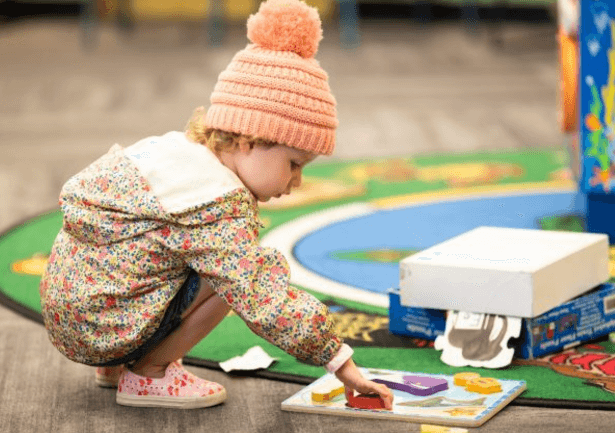Creative Play: Why It’s Important for Toddlers

What role does play have in shaping early childhood? How can creative activities foster cognitive and emotional growth? Engaging young children in imaginative activities is vital for their development, offering benefits beyond entertainment.
Creative play allows children to explore, express, and engage with their environment in meaningful ways. Elements like Grimms wooden toys can elevate these activities, blending fun with learning. Such play methods can stimulate a child’s mind, nurture emotional well-being, and build foundational skills for their future.
The Foundation of Creative Play
Creative play serves as a critical foundation for early development. It encourages children to experiment with ideas, solve problems, and use their imaginations. Through activities such as role-playing or building, they learn how to navigate challenges while fostering independence.
This type of play nurtures the essential ability to think outside the box and enhances communication skills. Children often articulate thoughts, negotiate roles, or narrate stories when playing pretend scenarios, helping them develop verbal and social abilities.
Boosting Cognitive Development Through Imagination
Imagination plays a central role in cognitive growth. Activities that promote creative thinking allow children to practice decision-making and critical reasoning. These experiences help them link concepts, discover patterns, and build spatial awareness.
Creative play provides a hands-on way to explore abstract ideas through tangible actions. Tactile play options like stacking, sorting, or building can also support hand-eye coordination and fine motor skills. For example, working with vibrant, textured objects helps refine these skills while keeping children engaged in meaningful play.
Encouraging Emotional Expression and Resilience
Imaginative play offers a safe space for emotional exploration. Children often express feelings through storytelling or pretend scenarios, enabling them to understand and regulate emotions better and build resilience.
They learn perseverance when encountering obstacles during play, such as balancing blocks or achieving a specific outcome. These small victories during playtime can strengthen their confidence and adaptability in real-life situations.
Social Interaction and Relationship Building
Creative play nurtures social skills by encouraging collaboration. When children play together, they practise sharing, turn-taking, and empathy. These interactions foster a sense of community and improve interpersonal relationships.
By learning to cooperate, children also develop skills essential for teamwork later in life. Group activities also encourage children to appreciate diverse perspectives. Whether playing house or constructing a shared project, they learn to value teamwork and respect differences.
The Value of Wooden Toys in Creative Play
Wooden toys are more than just entertainment—they nurture creativity and learning. Simple designs encourage imagination, open-ended play, and storytelling while enhancing fine motor skills and hand-eye coordination. Toys like building blocks and stacking rings foster spatial awareness and problem-solving, perfectly complementing creative play.
Wooden toys are made from natural, non-toxic materials and offer a safe, eco-friendly play environment. Their durability ensures years of use, making them a sustainable investment in a child’s development while promoting healthy, imaginative exploration.
The Long-Term Benefits of Creative Play
Creative play lays the groundwork for future academic and personal success. By cultivating problem-solving skills, emotional intelligence, and social understanding early, children are better equipped to navigate their future.
Moreover, this type of play nurtures curiosity and adaptability—essential traits for lifelong learning. Engaging children with thoughtful activities prepares them for challenges while fostering a positive approach to discovery and growth.
Grimms wooden toys and similar imaginative tools offer a pathway to meaningful early childhood development. Creative play is not just a pastime; it is a crucial part of nurturing well-rounded, confident, and capable individuals prepared to thrive in all areas of life.





